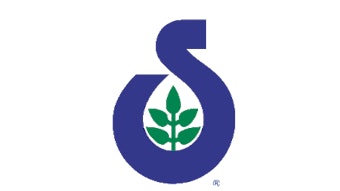T. Hasegawa Co.'s (Tokyo) full-year 2012 net sales rose slightly by 0.3% from a year earlier although lackluster flavor demand at its China unit made the company miss its internal sales goals for the year. Meanwhile, net income fell due to a higher tax rate.
For 2012, T. Hasegawa said its net income fell 17% to 2.59 billion yen from 3.12 billion yen a year ago, as the company was hurt by a higher corporate tax rate. Still, operating income was down 5.5% at 4.33 billion yen compared to a year earlier.
Net sales for the year rose to 44.4 billion yen from 44.2 billion yen a year earlier, marked mainly by an overall slight increase in flavors and a slight decrease in fragrance sales. In fragrance, sales for household products decreased. In flavor, sales of fruit preparation increased.
Still, the company said it was off 2.1% by its own internal total net sales forecast of 45.3 billion yen for the year since net sales in China didn’t meet the original plan due to a sales decline in its flavor business there. For its China unit, sales fell 0.7% to 4.10 billion yen. Meanwhile, sales at its U.S. unit rose 12.5% to 1.63 billion yen due to new products.
Looking ahead, the company said it plans to cultivate the local markets of the U.S., China and Southeast Asia by capturing the features of the diversified local tastes and preferences to offer tailor-made products. It also wants to reach locally operating companies, global companies and Japanese companies and pursue localization of the overseas subsidiaries’ operations through recruiting and cultivating the local management position. Its second step is to expand its network through growth opportunities with multinational companies.
In the Japan-based company’s domestic market, it sees opportunities due to the aging population and new applications for flavors in (non-alcoholic beer and cocktail, alcoholic drinks, health food, and food for medical use).
In China, T. Hasegawa's plans include creating products that meet local tastes and preferences, local procurement of raw materials and enhancing production capacity (the second phase of the capital investment of Suzhou plant).
In the U.S., the company plans to gain revenue from savory flavors (for condiment, seasonings etc.), which is an area of T. Hasegawa's focus. It also aims to fully reach the beverage market and apply the technology it has accumulated through collaboration between the research and development divisions in Japan and the U.S. It also plans to construct a new organization structure aimed at enhancing growth opportunities with multinational companies.









